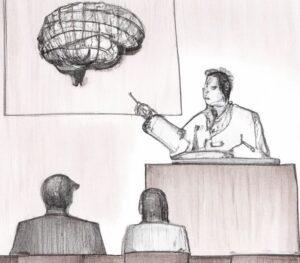Traumatic Brain Injury (TBI) not only has a profound impact on the lives of those who suffer from it but also often leads to complex legal battles. TBI lawsuits are filed for various reasons, including seeking compensation for medical expenses, loss of income, and pain and suffering. However, navigating a TBI lawsuit can be daunting and filled with nuances many may not anticipate. Here are five aspects of TBI lawsuits that are crucial for plaintiffs and their families to understand:
1. The Complexity of Proof In TBI Lawsuits
One of the most challenging aspects of a TBI lawsuit is the complexity of proving the injury and its repercussions. Unlike more visible injuries, TBIs can be subtle and may not always show up on standard medical imaging tests. Proving the extent of cognitive, emotional, and physical impairments requires extensive medical evaluations and expert testimonies. In addition, a thorough demonstration of how the injury has affected the individual’s daily life and prospects.
2. The Importance of Expert Witnesses
Due to the complex nature of TBI, expert witnesses play a pivotal role in TBI lawsuits. These experts, including neurologists, neuropsychologists, and life care planners, provide critical evidence regarding the nature of the injury and its long-term implications. In addition, the associated costs of care and rehabilitation. The testimony of expert witnesses can significantly influence the outcome of the case, making the selection and preparation of these experts a critical strategic component.
3. Long-Term Damages and Compensation
TBI lawsuits often involve claims for long-term damages, as the effects of a brain injury can extend far into the future. Plaintiffs may seek compensation not just for immediate medical expenses and lost wages. Also, for future loss of earning capacity, ongoing rehabilitation costs, home modifications, and non-economic damages like pain and suffering. Calculating these damages requires a deep understanding of TBI’s legal and medical aspects, making working with attorneys and experts in this field imperative.
4. Statute of Limitations Challenges for TBI Lawsuits
The statute of limitations for filing a TBI lawsuit can vary significantly from one jurisdiction to another. What many don’t realize is that, in some cases, the symptoms of a TBI may not become fully apparent until well after the incident that caused the injury. This delay can complicate matters, as plaintiffs must navigate the legal timeframe for filing a lawsuit while also dealing with the evolving nature of their injuries. Understanding and adhering to these time constraints is crucial to avoid missing legal recourse opportunities.
5. Psychological and Emotional Toll on Plaintiffs
Engaging in a TBI lawsuit can be an emotionally and psychologically taxing process for the injured party and their families. The process often involves recounting traumatic events, undergoing extensive medical examinations, and facing skepticism about the severity of the injury. This aspect of TBI lawsuits is frequently underestimated but can significantly impact the well-being of plaintiffs. It underscores the importance of securing legal representation that is skilled and knowledgeable but also compassionate and supportive.
In conclusion, TBI lawsuits encompass a range of complexities that go beyond what most people initially anticipate. From the difficulty of proving the injury to the emotional toll it takes on individuals and their families, navigating these lawsuits requires careful preparation, expert guidance, and an understanding of their unique challenges. Awareness of these factors can be crucial in securing a just and favorable outcome for those embarking on this challenging journey.






